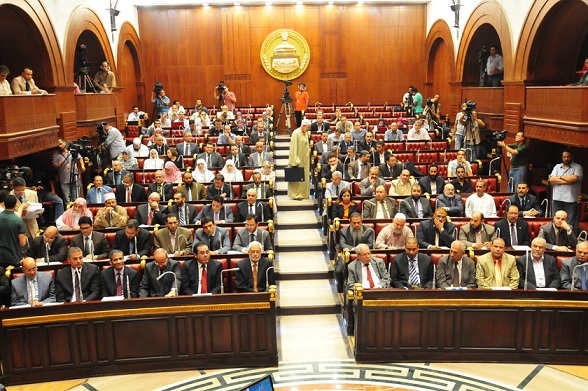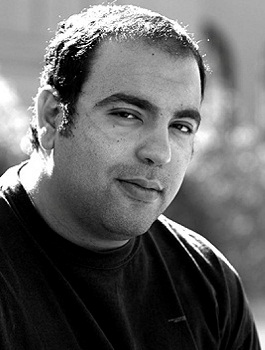 For many, the early days of the revolution served as a political coming-out for a number of underground organisations, some weak, others strong, and individuals, all out to prove their revolutionary worth and zeal.
For many, the early days of the revolution served as a political coming-out for a number of underground organisations, some weak, others strong, and individuals, all out to prove their revolutionary worth and zeal.
Hailing almost exclusively from the country’s middle and upper middle class youth, from within the ranks of these revolutionaries quickly emerged a number of leaders, many of whom unfortunately would go on to lose much of their credibility almost as quickly as they had earned it.
Gathering and organising themselves via Facebook and the internet, these youth did not mobilise themselves from within the confines of a university or series of factories, as had happened during previous uprisings. That being said, these youth, who we recognise as the fire that fuels the revolution, cannot be classified as being part of any specific social framework or context.
It is quite remarkable that the January 25th revolution was not led by a set vanguard that could trace its roots back to a particular social umbrella, from which leaders could emerge and true movements seeking to effect change could be created.
During the intifadas and uprisings occurring between 1968 and 1977 for example, most of those participating in these movements identified as students, marching to and from Egypt’s various squares and plazas from their respective universities. This common identity allowed them to select leaders from within their ranks whom they could relate to, who enjoyed long-lasting respect and credibility and would not be forced into early retirement. This lack of cohesion is perhaps the greatest failure of the January 25th revolution and its youth.
Facebook and the internet are perhaps the only unifying factors that brought the youth together during the early days and weeks of the revolution, and it is from within this space that we saw the emergence of a number of youth leaders, many of whom however quickly lost touch with their base and dispersed. The country’s emerging political parties, who at the time were removed from and seeking to re-enter Egypt’s political scene, viewed the youth as a defiant, scattered force that had not yet designated a leader or claimed any specific political dogma.
There did emerge some organisations and individuals, such as the April 6th movement, Muhammad ElBaradei and others, who were able to rally supporters and genuinely sought to build bridges between themselves and the nation’s youth. However it’s no exaggeration to say that many of these parties sought to use and exploit the youth rather than engage them in serious dialogue, or allow them to operate as part of a political framework wide enough for them to exercise influence.
Attempts by the youth to mobilise themselves were also unfortunately met with limited success, with those parties created by the youth often unwilling or unable to effectively cooperate with those from previous generations.
Many emerging political parties during this time sought to neutralise the youth and guard against their power, which they had begun to fear, as many had begun to believe that what had happened during January and February of 2011 was a revolution launched by the youth for the benefit of the youth, as opposed to all of Egypt.
This reinforced the view that what was happening was a generational war which could be solved by granting token leadership positions to Egypt’s young leaders. This eventually gave way to the notion that “sure, the youth are great people, but they have no place in politics”. Many political organisations operating during this period sought to convince the youth that despite the revolution Egypt’s politics had remained corrupt, that the intentions of all the country’s political parties were suspicious, and that the youth were all that was left of that which was pure and innocent.
This train of thought led much of the youth to feel alienated, and subsequently rebel against the country’s political establishment and its various parties. They no longer valued the idea of cooperation and social justice, with many removing themselves from Egypt’s political scene altogether.
The Egyptian Social Democratic Party achieved some success in helping to mobilise the youth, however perhaps not enough. It is this failure that we hope to address and improve in the future.
The Justice and Conscious Parties were able to achieve some successes during the early days of the revolution, however this was quickly overlooked by the latter’s absorption into the Dostour Party, with the former falling on hard times and losing much of its initial momentum.
Perhaps, if one believes in the adage that what doesn’t kill you only makes you stronger, the Justice Party may have a chance to revive itself. However it is more likely that the Dostour Party is best-equipped to organise the youth and re-instill in them the notion of cooperation and social justice. However this will be a difficult task that will require hard work and patience.
Unfortunately, efforts are still being made to weaken the power of the youth and distort its image, with campaign after campaign launched to essentially remove our youngest citizens from Egypt’s political scene, despite the fact that we need their numbers to help combat the influence of the Muslim Brotherhood.
What is truly remarkable is that those who are guilty of perpetrating such crimes are those who often claim to have the most revolutionary zeal! Many seek to push the youth into despair, prompting them to commit acts of violence, sowing the seeds of frustration and isolation. Many of these same people then seek to undermine the revolution, repeating over and over that it has accomplished nothing.
In combating these campaigns, we must in good faith continue to seek dialogue with the nation’s youth, as it is the only way to transform our current state of weakness and fragmentation into that of strength, rooted in organised political parties. We must persevere in order to succeed, keeping our long term goals in mind. Our current battle is one that will be won little by little, punch by punch, rather than with a technical knockout.




